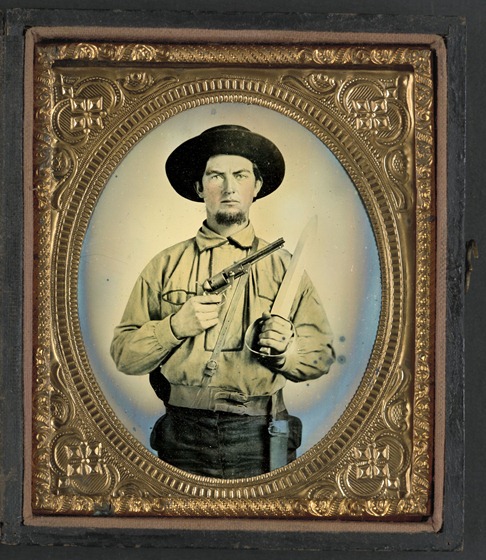In Camp At The Capitol.
Camp On E. Capitol Hill,
Washington, Oct. 12, 1862.
Dear Free Press:
The Twelfth left its temporary quarters at the Soldiers’ Rest, on Friday at 11 o’clock, and moved to our present camp, something over a mile to the east of the Capitol. It is upon the wide, high, level plain called Capitol Hill. To the south of us, but hidden from our sight, runs the Eastern Branch of the Potomac, and across it are the Virginia heights, with four or five forts crowning the more prominent elevations. The ground on which we are encamped has but two or three trees in a square mile, and having been the site of numerous camps, is not overstocked with grass. Some of the men looked a little blank as they saw the bare, cheerless surface of Virginia clay on which they were to pitch their tents, and some blanker yet when they took in the length and breadth of the little strips of canvas which were to be our only shelter from sun and storm. The “shelter tent” is a couple of strips of light cotton duck, about five feet long and four feet wide, which button together at the top or ridgepole of the concern, is pitched by straining it over the muzzles of a couple of muskets set upright, and so forms a little shelter, with both ends open, under which two men may huddle and sleep at night. A short man can be fairly covered by it; a man of ordinary height must draw up his feet or let them stick outside. We got our little tents pitched by dark, and officers and men were by that time hungry enough to enjoy their supper of three hard army biscuit apiece, —there was no fuel to cook anything with, and our cooked rations had spoiled on the journey—and tired enough to drop off quickly to sleep, with but their blanket between them and the ground. Most of us, however, were waked at midnight by the rain driving into our little tabernacles. My bedfellow turned out and hung rubber blankets so as to keep out the most of it from us, and we dropped to sleep again, to sleep soundly till morning. These are mere trifles of a soldier’s every-day life; but they are what many of your readers, who wish to know just how their boys are living while away, want to know about, and so I put them on paper.
Next day our colonel and quartermaster got the strings of red tape which hang around the various departments of supply, thoroughly pulled, and by two o’clock a train of a dozen army wagons came filing into camp with fuel, rations of good bread, beef, pork and potatoes, forage, and, last but not least, A tents. These were quickly made to take the place of the little shelters, and were viewed with intense satisfaction by the men. They are not the biggest things in the world—are in fact the simplest form of tent proper, wedge shaped and holding six men apiece lying closely side by side; but they are tents, and can be closed against the weather. When we take the field, we must take the others again.
We shall now begin the work of active drill, and will soon, I trust, be in fighting order.
We have already been visited by many of our friends of other regiments—by Quartermaster Dewey, Capt. Erhardt, Sergeant Morse and others of the First Vt. Cavalry, whose camp is across the river; by several from the Eleventh Vt., which is in camp about four miles away; by Lieut. Carey, of the 13th Mass., which fine regiment, once of 1100 men, has now 700 in hospital, sick and wounded, and is reduced by losses (in battle mainly) to 191 effective men; by Lieut. “Willie” Root, of the 22d Conn., which was in camp close by us yesterday, but to-day has struck tents and moved away to Chain Bridge; and by others, whose brown and hearty faces it was pleasant to see.
We begin to realize that we are a part of the big army of the Republic—and that a single regiment is but a little part of it. Camps surround us on every side. Six thousand men, they say, came into Washington the day we did, and some come every day. They come, encamp, and disappear, the rest know not whither. Our thousand is but one of a hundred thousand, and its best blood,—which will be given as freely as water, if need be—will be but a drop in the red tide which the demon of rebellion causes to flow.
What can be done for any regiment our colonel will do for this. The men already feel attached to him—and the sentiment will strengthen, I think, as they know more of him. He will be well seconded by his field and staff; and if the Twelfth does no service it will not be the fault of its officers, as I believe. We are to be temporarily brigaded, in our present camp, with the 25th and 27th New Jersey.
Yours, B.











